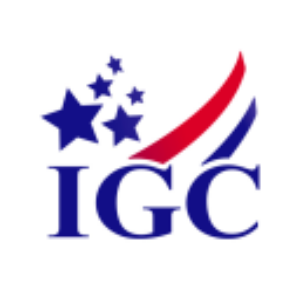IGC Completes the Final Cohort of Its Phase 1 Clinical Trial on Alzheimer’s Patients
India Globalization Capital, Inc. (“IGC” or the “Company”) (NYSE American: IGC) announces today it has completed Cohort 3 of its Phase 1 clinical trial on IGC’s tetrahydrocannabinol (“THC”)-based investigational new drug, IGC-AD1, intended to alleviate the symptoms of individuals suffering from Alzheimer’s disease. As previously disclosed, IGC submitted IGC-AD1, its investigational drug candidate for Alzheimer’s, to the U.S. Food and Drug Administration (“FDA”) under Section 505(i) of the Federal Food, Drug, and Cosmetic Act. IGC received approval to proceed with the Phase 1 trial, on Alzheimer’s patients, from the FDA on July 30, 2020. Cohort 3 is the final cohort in IGC’s Alzheimer’s Phase 1 trial. The Data and Safety Monitoring Committee (“DSMC”) for IGC’s clinical trial will review the data from Cohort 3, and IGC will report its findings from all three Cohorts to the FDA.
As previously announced, for Cohort 1, we administered one dose of the investigational new drug IGC-AD1 per day to Alzheimer’s patients, which we increased to two doses in Cohort 2 for the same Alzheimer’s patients, and to three doses in Cohort 3. This Phase 1 trial focuses on the safety and tolerability of IGC-AD1 on patients suffering from mild to severe Alzheimer’s. Daily, we monitored and recorded certain solicited adverse events, such as somnolence, falls, dizziness, asthenia, suicidal ideation, hypotension, hypertension, psychiatric symptoms, seizures, paradoxical nausea and vomiting. We also monitored unsolicited adverse events such as urinary tract infections and other abnormalities. All adverse events were tabulated and measured using a severity scale and compared against trial halting rules.
To IGC’s knowledge, this is the first human clinical trial using low doses of natural THC, a psychoactive member of the cannabinoid class of natural products produced by the Cannabis sativa plant, on Alzheimer’s patients. We are motivated by the potential that, with future successful results from appropriate further trials, IGC-AD1 could contribute to relief for some of the 50 million people around the world expected to be impacted by Alzheimer's disease by 2030 (WHO, 2020).
About IGC:
India Globalization Capital, Inc. (IGC) engages in the development of cannabinoid-based therapies for indications such as Alzheimer's disease and pain. It operates in two lines of business, Infrastructure and Life Sciences and is headquartered in Potomac, MD.
www.igcinc.us www.igcpharma.com
Forward-Looking Statements:
This press release contains forward-looking statements within the meaning of Section 21E of the Securities Exchange Act of 1934. These forward-looking statements are based largely on IGC’s expectations and are subject to several risks and uncertainties, certain of which are beyond IGC’s control. Actual results could differ materially from these forward-looking statements as a result of, among other factors, the Company’s failure or inability to commercialize one or more of the Company’s products or technologies, including the investigational new drug or formulation described in this release, or failure to obtain FDA approval for the investigational new drug; testing results from human clinical trials that may not be favorable or as anticipated; general economic conditions that are less favorable than expected, including as a result of the ongoing COVID-19 pandemic; the FDA’s general position regarding cannabis- and hemp-based products; and other factors, many of which are discussed in IGC’s SEC filings. IGC incorporates by reference the human trial disclosures and Risk Factors identified in its Annual Reports on Form 10-K filed with the SEC on June 14, 2021, as if fully incorporated and restated herein. In light of these risks and uncertainties, there can be no assurance that the forward-looking information contained in this release will occur.
View source version on businesswire.com: https://www.businesswire.com/news/home/20210623005964/en/







